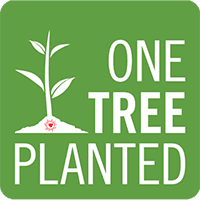
25 trees will be planted on your behalf for every experience purchased, via our partnership with One Tree Planted.
See more at onetreeplanted.org
The program consists of working with students aged between 6 months and 6 or 12 years depending on the placement, teaching and playing in English. You can choose to be with the younger or older children if you wish, or to work with all ages. Participants will be working alongside local staff, but will be free to bring their own ideas into class. It is important to understand that the methods of teaching and interacting are less important than the attitude of the participant towards the children. Activities will change in line with the school year, taking into account environmental issues or current festivals. In holiday periods there are special events and programmes to keep the children entertained and engaged.
The childcare program serves a dual purpose; of course it is meant to help children to have fun and to learn English with a mother tongue or very fluent speaker, but it also benefits you, giving you an insight into childcare and the Costa Rican education system as well as an excellent opportunity to form bonds with students, teachers and even parents, and so take a full role in the community.
Volunteer experiences have a direct and positive impact on local communities by injecting money into the local economy through the purchase of food, transportation, and tourism activities. Volunteering is a great way to give back to the comunity and make a difference in the world. Depending on the type of volunteer experience you are interested in, your time can be spent improving educational resources and opportunities, providing medical services to underserved communities, or promoting environmental conservation and sustainable farming techniques.

25 trees will be planted on your behalf for every experience purchased, via our partnership with One Tree Planted.
See more at onetreeplanted.org

1% of gross sales will be donated to 1% for the Planet-approved charities via our partnership with 1% for the Planet.
See more at onepercentfortheplanet.org
Esparza is a medium-sized agricultural town nestled amongst the mountains above Rio Barranca, in the Central Pacific Coast area of Costa Rica. The area was first settled by the Chorotega and Huetar peoples. The Chorotega people fled from Mexico 1,500 years ago and brought their traditions with them. This is a possible reason why there are Mexican words which jump several countries and turn up again in Costa Rica.
We will pick you up at the airport and transfer you to our center. Saturday arrivals need to book one extra night at our accommodation.
You will be balancing a range of activities for your duration at the school or daycare. Your schedule can be flexible, but you should be prepared to teach 3-6 hours a day. You will have lunch on site and can expect to remain there from 07:30 until just after 16.30, depending on your schedule, giving you plenty of time to immerse yourself in the school and its activities, and to get to know its students and staff.
Three meals a day on weekdays (two on weekends) are included during your stay. The meals will mainly be a mix of traditional and modern Costa Rican food, so you may experience the Costa Rican take on foods you will be familiar with. Most meals will include either fish, chicken, pork or beef, but vegetarians can be catered for.
Your new home will be one of two newly built eco houses in our centre in Esparza: Jaguar House and Toucan House.
The two houses sleep up to 22 people. Most rooms have bunk beds and are shared on a single gender. One room in each house has a bunk bed with a double bed below, single above, suitable for couples or small families, if needed. (Private rooms can be obtained at additional cost; this must be arranged before arriving for your program).
All doors are lockable, but as rooms are shared, and we carry out regular cleaning, we recommend that you don't lock your rooms.
There is also a large dining hall/games room/communal area shared by both houses, with free WiFi, and table tennis, and a large garden of tropical plants, including coconut palm, papaya, banana, and citrus